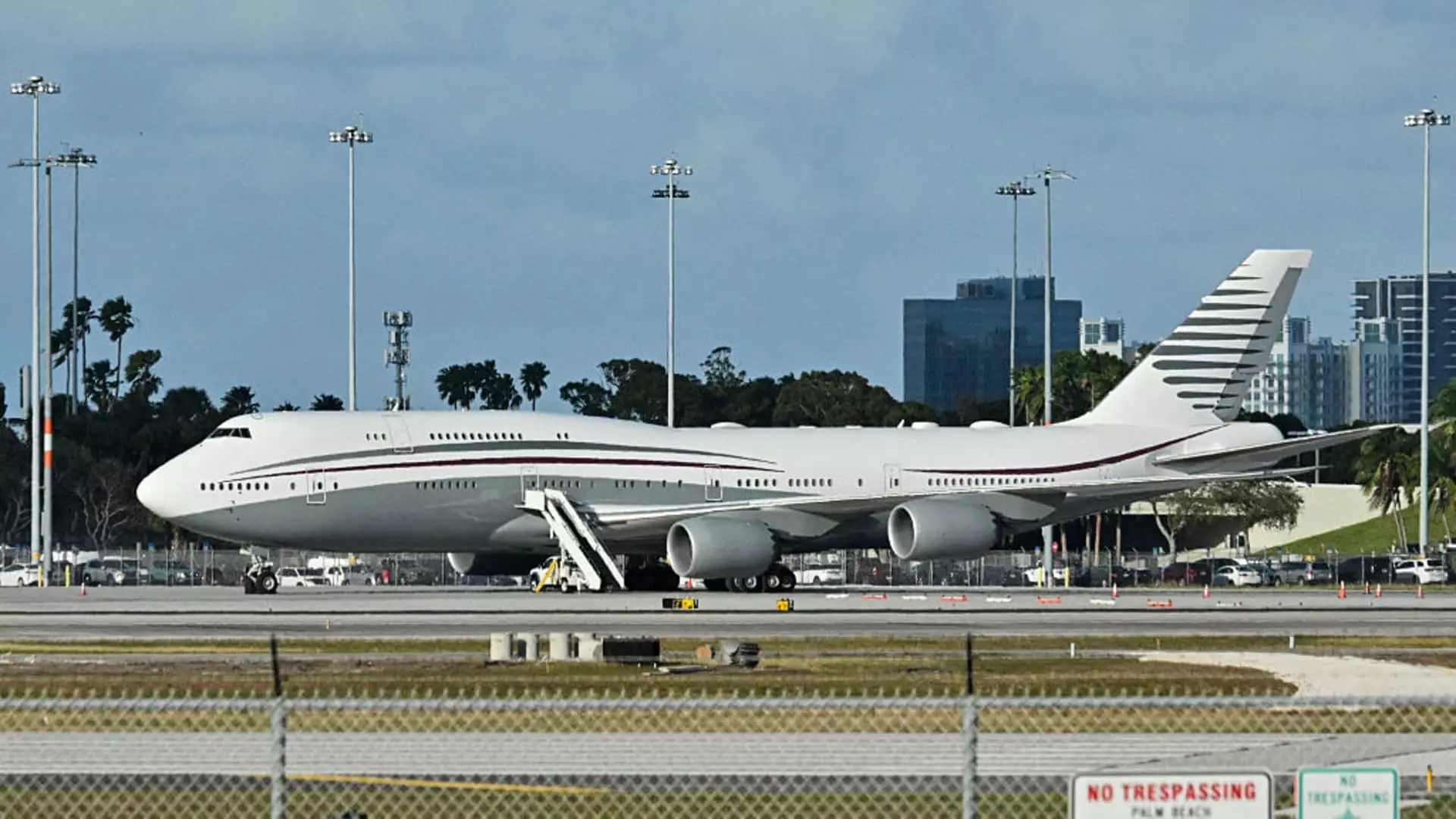The recent acceptance of a luxurious Boeing 747 by the Trump administration raises significant questions about ethics, transparency, and the sanctity of the presidential office. This transaction, touted as a ‘gift’ from Qatar, has quickly morphed into a political firestorm, eliciting accusations of bribery and corruption from both sides of the political spectrum. If we are to make sense of this situation, one must delve into the implications of accepting such a high-value item from a foreign nation.
The optics of this move are troubling. When a foreign government gifts a significant asset to a sitting U.S. president, the potential for ulterior motives cannot be dismissed. Senate Minority Leader Chuck Schumer aptly termed this transaction a “stain” on the presidency. It seems shortsighted to brush aside these concerns as simply partisan outcry. The ramifications of such actions transcend the individuals involved; they chip away at the public trust in our government institutions.
What makes this donation particularly jarring is its timing and context. Amid allegations of corruption and discussions that dabble in the murky waters of national security, accepting a Qatari jet for use as Air Force One carries a weighty significance that cannot be understated. This is not merely a transaction; it is a signal that the presidency can be used as a bargaining chip in delicate international relationships.
National Security Risks and Accountability
While the Trump administration insists that the transition will abide by appropriate security protocols and practical mission requirements, skepticism remains rampant. Concerns escalate when one considers that the conversion of this jet might cost taxpayers over a billion dollars—a sharp essence of fiscal irresponsibility when many Americans are struggling economically. Are we truly willing to spend taxpayer dollars to convert a gift laden with so many political and ethical complications?
Republican Senator Susan Collins has voiced what many might regard as a common-sense warning: this transaction is fraught with potential national security issues. Why should we subject ourselves to potential vulnerabilities? Accepting this jet could be seen not only as an acceptance of a ‘gift’ but as an opening for potential political espionage. The idea that our president might be indebted, even subtly, to a foreign government is not only problematic; it is downright dangerous. In a world where trust and security are tenuous at best, the dangers of intertwining our highest office with foreign interests are undeniable.
The Trump Factor: Privilege or Problematic?
The acceptance of this jet conveniently fits into Donald Trump’s ongoing narrative of privilege. Trump, brimming with bravado, deems it “stupid” not to accept such an extravagant gift, arguing that it is essential for national interests. This dismissive attitude towards ethical scrutiny reflects an alarming tendency of his administration to prioritize appearances over accountability.
This approach not only alienates critics but also sends questionable signals to the electorate about what constitutes acceptable behavior in governance. When the line between public service and personal gain appears blurred due to a foreign gift, trust in leadership erodes. The notion that accepting a ‘free’ jet from an ally circumvents accountability is deeply misleading. It stars as a dangerous precedent that could set the stage for future administrations to engage in similar reckless behavior, potentially jeopardizing national interest for personal or political gain.
A Call for Transparency
The political battleground settled on the acceptance of this gift demands transparency and intense scrutiny. Introducing legislation to prevent foreign aircraft from assuming the role of Air Force One is a crucial first step, but far more needs to be done to reclaim trust in governance. Every American should be concerned by the ethical slippery slopes that arise when foreign interests manage to lodge themselves within the corridors of power in such conspicuous ways.
While Trump’s defenders may attempt to label critiques as mere partisan attacks, the foundational issues of ethics, accountability, and national security surrounding this ‘gift’ argue against such dismissal. The U.S. deserves leaders who think beyond their immediate ambitions and navigate foreign relations with the integrity and prudence that our democracy demands. Without this, the fabric of democracy risks fraying, rendering notions of public service to be mere shadows of self-interest.
In the backdrop of international relations and national security, we must demand better. The dialogue surrounding Qatar’s gift is not just about a plane; it embodies the critical intersection of ethics, governance, and the integrity of our Republic.

